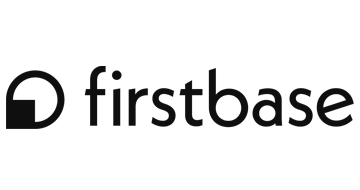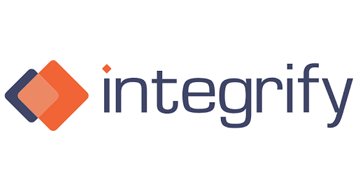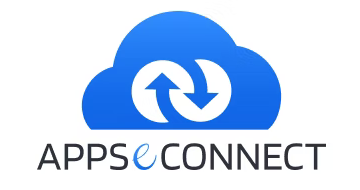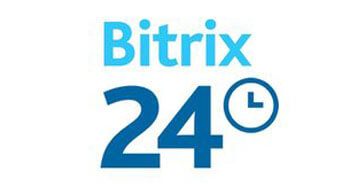
| Starting Price | $399 |
|---|---|
| Pricing Model | One-time Cost |
| Free Trial | No |
| Free Version | No |
Streamline your business operations and increase your productivity with the best business management software solutions. Support your team, optimize workflows and gain valuable insights to drive growth and success.
Find the best value tool on SaasGenius.
Explore our curated list of the best business management software solutions that deliver exceptional value and functionality. Our top picks are industry-leading solutions that can revolutionize the way you manage your business.

| Starting Price | $399 |
|---|---|
| Pricing Model | One-time Cost |
| Free Trial | No |
| Free Version | No |

| Starting Price | $39/month (sales tax excluded) |
|---|---|
| Pricing Model | Subscriber based |
| Free Trial | No |
| Free Version | No |

| Starting Price | Contact for price |
|---|---|
| Pricing Model | Quotation based |
| Free Trial | Yes |
| Free Version | No |

| Starting Price | $129/month |
|---|---|
| Pricing Model | Subscriber based |
| Free Trial | Yes |
| Free Version | No |

| Starting Price | $49/mo |
|---|---|
| Pricing Model | Per Team |
| Free Trial | 30-days |
| Free Version | Yes |
Business management software serves as the central nervous system for modern organizations, orchestrating everything from financial operations to human resources under one unified platform.
Rather than juggling disconnected tools for different departments, smart businesses are consolidating their operations with comprehensive solutions that integrate accounting, inventory management, human resources, and project management functions seamlessly.
The software deployment landscape offers flexibility through local installation, cloud-based servers, or browser-accessible platforms. The most popular business management tools include accounting software, CRM systems, and ERP (enterprise resource planning) platforms that form the backbone of efficient business operations.
Modern businesses leverage these systems to automate critical daily operations like payroll processing and inventory tracking. The transformation is dramatic: companies reduce time spent on administrative tasks such as data entry and manual record keeping by up to 75%, freeing teams to focus on strategic growth initiatives.
Cloud-based business management systems are experiencing unprecedented adoption due to compelling advantages over on-premise solutions: enhanced scalability, universal accessibility, and significantly lower total ownership costs. This shift represents more than a trend—it’s a fundamental change in how businesses operate in the digital economy.
Our evaluation methodology combines rigorous testing with real-world performance metrics to deliver accurate, actionable insights. We assess business management software across multiple dimensions including functionality depth, user experience design, customer support quality, and overall value proposition.
Each software solution receives a comprehensive evaluation through our proprietary Genius Score system, ranging from 0 to 100. This scoring methodology ensures consistent, objective assessments that help businesses make informed decisions.
Business management software eliminates the chaos of operating multiple disconnected systems by providing a single source of truth for organizational data and processes. While many companies struggle with fragmented solutions across different departments, integrated business management platforms streamline workflows and centralize information access.
The growing demand for quality business management solutions reflects businesses’ urgent need to automate and optimize daily operations. Here’s how these platforms transform business operations:
Effective employee management extends far beyond basic HR functions. The best business management systems provide granular visibility into team performance, productivity metrics, and resource allocation.
This comprehensive view enables data-driven decisions about hiring, performance evaluations, and strategic promotions based on concrete evidence rather than assumptions.
Advanced systems integrate with operations management software to optimize workforce deployment and identify productivity bottlenecks before they impact business outcomes.
Modern time tracking encompasses both manual timesheet systems and sophisticated automatic monitoring through integrated devices and applications. Automatic tracking solutions provide unprecedented insight into actual work patterns, project time allocation, and operational efficiency metrics.
This granular data collection enables businesses to optimize resource allocation, identify process improvements, and make strategic decisions about project pricing and capacity planning. Integration with project management tools creates a comprehensive view of project profitability and team performance.
Financial management capabilities extend well beyond basic bookkeeping to encompass strategic planning, forecasting, and business intelligence. These systems track income and expenses while generating sophisticated reports that reveal trends, identify opportunities, and highlight potential risks.
Advanced platforms integrate seamlessly with accounting software and enable direct invoice generation and automated payment processing through email and integrated payment gateways.
Professional quote creation transforms from a time-consuming manual process into an automated, template-driven system. Modern business management software enables rapid quote generation based on predefined parameters, historical data, and customizable templates.
The system maintains comprehensive quote histories, enabling easy comparison of vendor offers, analysis of acceptance rates, and optimization of pricing strategies. Integration with contract management software streamlines the entire sales cycle from initial quote to contract execution.
Modern business management solutions incorporate sophisticated functionality designed to address the complex operational needs of growing organizations.
| Feature Category | Core Capabilities | Business Impact |
|---|---|---|
| Data Management | Automated backup, disaster recovery, encryption | Business continuity, compliance, security |
| Business Intelligence | Real-time analytics, predictive modeling, custom dashboards | Strategic decision making, performance optimization |
| Process Automation | Workflow automation, approval chains, notification systems | Efficiency gains, error reduction, consistency |
| Integration Platform | API connectivity, third-party app integration, data synchronization | Ecosystem optimization, reduced manual work |
Data security represents the foundation of any reliable business management platform. Comprehensive backup and disaster recovery systems ensure business continuity even during unexpected events. The most robust solutions implement multi-layered security protocols including encryption, access controls, and audit trails.
These security features benefit organizations of all sizes, from small businesses protecting customer data to large enterprises managing complex compliance requirements. Integration with specialized knowledge management software ensures secure document storage and controlled access to sensitive information.
Business intelligence transforms raw operational data into actionable strategic insights. Modern platforms provide real-time performance dashboards, predictive analytics, and customizable reporting tools that reveal patterns invisible in traditional reporting methods.
These insights enable proactive decision-making about marketing investments, sales strategies, and operational improvements. The integration with BPM software creates a comprehensive view of business performance across all operational dimensions.
Automation capabilities extend throughout the organization, from simple data entry tasks to complex approval workflows. Advanced systems learn from user behavior to suggest process improvements and identify automation opportunities.
Features include automated transaction recording, intelligent reconciliation algorithms, customizable approval chains, and real-time reporting generation. This automation reduces human error while freeing staff to focus on high-value strategic activities.
The implementation of comprehensive business management software creates measurable improvements across all operational areas, delivering both immediate efficiency gains and long-term strategic advantages.
Business management software transforms organizational chaos into structured, efficient operations. The system serves as an institutional memory, tracking client interactions, project histories, and operational decisions that might otherwise be lost or forgotten.
For example, comprehensive client communication logs ensure seamless handoffs between team members and maintain service quality during staff transitions. Automated notification systems keep teams informed of critical deadlines and required actions, eliminating the risk of missed opportunities or compliance issues.
Effective data management enables organizations to maintain complete control over business-critical information while ensuring data integrity and accessibility. Modern systems provide real-time data synchronization, automated backup procedures, and granular access controls that protect sensitive information while enabling efficient collaboration.
This comprehensive data control eliminates information silos and ensures all team members work with current, accurate information. The integration with CRM software creates a unified view of customer interactions and business performance.
Business management software delivers quantifiable productivity improvements through process optimization and automation. By streamlining routine tasks and eliminating manual data entry, organizations typically experience 40-60% improvements in operational efficiency.
The time savings compound over time as automated systems handle increasing volumes of transactions without proportional increases in staff requirements. This scalability enables businesses to grow revenue without linear increases in operational costs.
Understanding the cost structure and return on investment helps organizations make informed decisions about business management software implementations.
| Pricing Model | Typical Range | Best For | Key Considerations |
|---|---|---|---|
| Per-User/Month | $25-$150 per user | Growing teams, scalable needs | Costs scale with team size |
| Volume-Based | $500-$5,000/month | High transaction volumes | Fixed costs regardless of users |
| Enterprise Tiers | $10,000-$100,000/year | Large organizations | Comprehensive feature sets |
This popular pricing model aligns costs with organizational growth, making it ideal for expanding businesses. Costs vary significantly based on feature complexity and support levels, with basic plans starting around $25 per user monthly and comprehensive enterprise solutions reaching $150 per user.
The scalability of this model makes it particularly attractive for businesses experiencing rapid growth or seasonal fluctuations in staffing requirements.
Organizations processing high transaction volumes often find volume-based pricing more cost-effective than per-user models. This approach provides predictable monthly costs regardless of team size, making it ideal for businesses with stable operations and defined processes.
Volume-based pricing typically includes comprehensive feature sets and priority support, making it suitable for organizations requiring advanced functionality without per-user cost concerns.
Successful business management software implementations typically generate positive ROI within 6-12 months through efficiency improvements, error reduction, and enhanced decision-making capabilities. Organizations commonly report:
These improvements translate into measurable cost savings and revenue enhancements that justify the software investment while positioning organizations for sustainable growth.
Successful business management software implementation requires careful planning, stakeholder buy-in, and systematic change management. Organizations that approach implementation strategically achieve better outcomes and faster adoption rates.
The key to success lies in understanding your current processes, identifying improvement opportunities, and selecting software that aligns with both immediate needs and long-term strategic objectives. Integration with existing tools like feedback management software ensures comprehensive operational coverage.
Modern business management software represents more than a technology investment—it’s a strategic enabler that transforms operational chaos into competitive advantage through intelligent automation, data-driven insights, and scalable processes that grow with your organization.